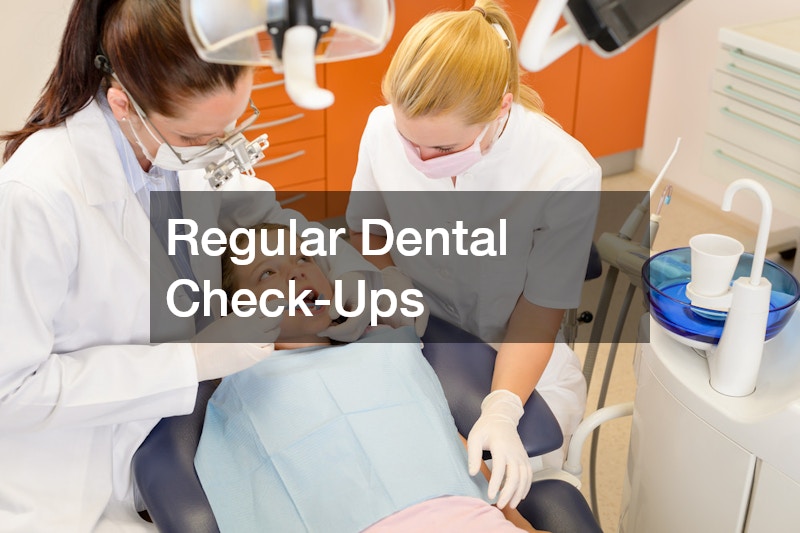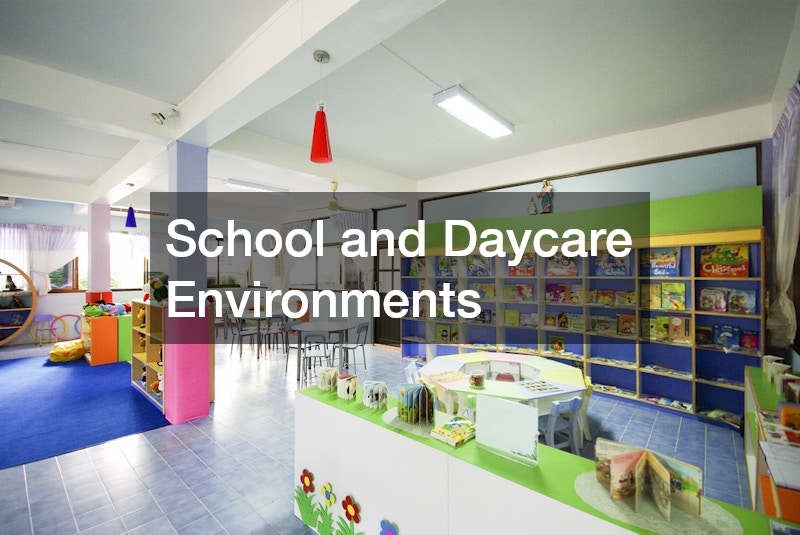Understanding the critical role of oral health solutions in children’s overall well-being is essential. Oral health intersects with various aspects of a child’s life, impacting physical, emotional, and social development. By addressing these factors, parents and caregivers can ensure a healthier future for their children.
Why Oral Health Solutions Are Important for Children
Oral health plays a crucial role in a child’s development and overall quality of life. Proper oral care from a young age can prevent cavities, gum disease, and other dental issues. Local pediatric dentistry services can provide professional care that aligns with kids’ unique needs, promoting lifelong oral health habits.
Good oral health also influences a child’s ability to eat, speak, and build self-esteem. Untreated dental issues can lead to pain, infection, and problems with eating and speaking. Engaging local pediatric dentistry services early on is vital to maintaining a child’s health.
The foundation for sound oral health should be established during childhood. Monitoring a child’s oral health can prevent more complicated issues in the future. Local pediatric dentistry is equipped to tackle any concerns parents may have.

Nutrition
Nutrition is a cornerstone of oral health. A balanced diet rich in vitamins and minerals strengthens teeth and gums. Foods like fruits and vegetables, rich in antioxidants, help protect the gums and other tissues from cell damage and bacterial infection.
Calcium is vital for strong teeth. Dairy products, leafy greens, and fortified alternatives are excellent sources, helping teeth remain strong and resistant to decay. Proper nutrition supports oral health solutions, which is why dental care services often emphasize a well-rounded diet.
Sugar intake should be moderated. High sugar consumption can lead to tooth decay, as bacteria in the mouth convert sugars into acids. Being mindful of your child’s diet is essential to maintaining a healthy mouth, in and outside dental care services.
Impact of Sugar
Oral Hygiene
Establishing a robust oral hygiene routine is critical for children outside their professional oral health solitions. Brushing twice daily and flossing helps remove food particles and plaque, preventing cavities. Starting these practices early, with tools and tips from local dental care services, sets children on a path to a healthy smile.
Supervision during brushing can make a significant difference. Parents should guide children until they can adequately clean their teeth independently. Educational visits to dental care services illustrate proper techniques, reinforcing their importance.
Fluoride toothpaste strengthens tooth enamel among oral health solutions. It is also fundamental in preventing cavities. Many dental care services advocate fluoride usage, and children’s toothpaste usually comes with appropriate fluoride levels to protect developing teeth.

Regular Dental Check-Ups
Regular dental check-ups are imperative for sustaining oral health. These appointments allow professionals to identify issues like cavities or gum disease early on. Visiting an urgent care clinic for dentistry ensures problems are swiftly managed before escalating.
Routine examinations involve professional cleanings that remove plaque and tartar, maintaining oral health. Scheduling these visits every six months helps track oral developments. Dental offices are equipped to implement preventative measures, aiding in long-term oral health.
Professional advice from dental offices can provide tailored Dietary and oral hygiene suggestions. This personalized counsel emphasizes proactive care practices. Regular visits to an urgent care clinic ensure that even minor concerns are addressed promptly.
Oral Care Routines
Mental health and oral health solutions are interlinked, often influencing one another. Anxiety or depression may lead to neglect in personal oral care routines. This neglect can increase the risk of oral diseases, making mental health interventions vital.
Stress can cause habits detrimental to oral health, such as teeth grinding. These actions can result in enamel wear and jaw issues, highlighting the importance of consulting with both mental health professionals and a sedation dentist. Addressing mental health may ease oral ailments.
Positive mental health contributes to effective oral hygiene maintenance. Motivation and energy levels are crucial when adhering to oral care routines, demonstrating their consideration within mental health services is beneficial. Promoting mental wellness serves as a preventive measure against oral health decline.
Pregnancy
Oral health solutions during pregnancy impacts both the mother and child. Hormonal changes can increase gum susceptibility to inflammation and plaque, necessitating attentive oral care. Pregnancy options should include collaboration with a local dentist who can provide specialized advice.
Oral health can affect pregnancy outcomes, highlighting the need for regular check-ups. Issues like gum disease have been linked to preterm birth and low birth weight. Coordination between healthcare providers ensuring comprehensive care, including collaboration with a pregnancy surrogate if needed, is vital.
Pregnancy is a time when dietary changes occur. Calcium intake, for instance, supports strong teeth development in the fetus. By addressing oral health concerns, and considering pregnancy options, a comprehensive maternal health approach benefits the newborn’s oral health.
Breastfeeding
Breastfeeding offers numerous oral health benefits for infants. It encourages proper development of the jaw, teeth, and palate. The act of sucking on the breast is instrumental in shaping the oral cavity.
Breastfeeding reduces the risk of baby bottle tooth decay. Unlike bottle-feeding, there is less exposure to sugars from milk formula, promoting healthier early oral conditions. Parents and caregivers should be informed of the oral benefits when considering breastfeeding options.
Nighttime nursing should still be managed with oral hygiene practices. Wiping the infant’s gums can help ensure that sugar and bacteria do not lead to later cavities. Keeping this in mind, resources and guidance from a child care center can be beneficial.

Physical Activity
Physical activity plays an unexpected role in oral health. Active children often drink more water, which aids in oral cleanliness by washing away food particles and bacteria. Encouraging consistent hydration during physical workouts can support oral health solutions and maintenance.
With increased activity levels, children may consume high-energy drinks. These often contain sugar and acids detrimental to tooth enamel. Guidance from dental care services can help parents monitor and manage these risks associated with energy drink consumption.
Physical activity also supports systemic health, positively impacting oral environments. Stronger immune responses protect against oral pathogens, reinforcing the importance of an active lifestyle alongside other oral care practices. By maintaining physical health, oral health concerns can be mitigated.
Medications
Some medications can influence oral health solutions, manifesting as either beneficial or adverse effects. For example, antibiotics may affect oral microflora balance. Parents should ensure any medication usage aligns with proper oral hygiene practices.
Children taking medications for chronic conditions might experience dry mouth as a side effect. Reduced saliva production can lead to cavities and bad breath. Dental care services can recommend solutions to alleviate these issues.
Medications used for headache relief might contain sugar to improve taste, posing potential risks for dental decay. Consulting with dental professionals when introducing new medications is wise, ensuring that oral health remains uncompromised.
Parental Influence
Parents have a profound impact on their child’s oral health. Modeling good oral hygiene practices instills lifelong habits in children. Regular visits to local dental offices can help parents learn effective techniques to teach their kids.
Parental choices in diet and routine play a role in the child’s dental health. Encouraging a balanced diet devoid of excessive sugars and regular check-ups is crucial. Dental care services frequently offer resources that empower parents to make informed oral health decisions.
An informed household paves the way for diligent care routines. Parents can utilize dental offices’ services to ensure their kids receive comprehensive oral care. Active participation in their child’s dental education fosters a culture of health awareness.

School and Daycare Environments
School and daycare environments can affect children’s oral health. Access to nutritious food choices and hygiene education are important factors supported by these settings. A child care center can coordinate with dental professionals to provide educational programs for oral hygiene.
Frequent snacking at school can lead to oral health concerns. Unmonitored sugary foods and beverages can contribute to cavity development. Schools can collaborate with local pediatric dentistry practices to host dental health workshops.
Creating a supportive environment in schools encourages positive oral hygiene routines. Schools should implement campaigns promoting regular brushing and proper diet. Engaging students ensures that they become proactive about their oral health solutions and practices.
Dental Environments
The dental environment profoundly influences a child’s perception of oral health care. A welcoming and child-friendly atmosphere can ease anxiety related to dental visits. Sedation dentists specializing in pediatric care can offer comfort for anxious patients.
By utilizing modern dental environments, parents can ensure an optimal treatment experience for their children. Technological advancements in dental offices, such as sedation options, ensure children receive comfortable care. Trust-building exercises in such environments facilitate smooth dentist-patient relationships.
Dentists within these environments can introduce preventive strategies, enhancing patient education. Parents should seek out dental environments that prioritize children’s comfort and provide comprehensive oral health solutions. Dental environments designed with children in mind greatly improve the quality of pediatric oral care.
Start Improving Your Child’s Oral Health Today
A holistic approach to children’s oral health considers various intersecting factors, including diet, mental well-being, and parental guidance. By understanding these, we can better tailor our care to address each child’s unique needs. Ultimately, maintaining and improving oral health for children requires collaboration across multiple disciplines to achieve lasting results. From local pediatric dentistry to involvement from school systems, several stakeholders play a vital role in supporting the dental needs of children. Encouragement in maintaining regular check-ups, engaging in healthy lifestyle choices, and fostering open communication about oral health solutions will set the foundation for your child’s lifelong well-being.

